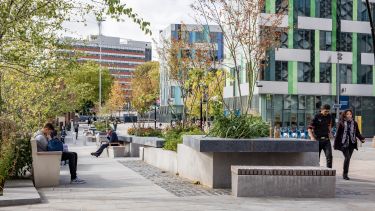The study, led by Bashar Shboul and Professor Lenny Koh from the Sheffield University Management School, used a ‘living lab’ project framework and university-wide survey to find out more about attitudes towards the different methods of making campuses more sustainable, and how those attitudes differed before and after the COVID–19 pandemic.
The findings provide valuable insights for sustainability researchers and other university campuses, offering practical guidelines for creating a net zero-carbon campus and how to engage staff and students on making changes for the benefit of the planet.
The study found that campus users were supportive of using reusable materials, paying more for sustainable products, seeking alternative transportation for short trips, and prioritising online conferences for sustainability. However, the pandemic did change some opinions, for example people were less inclined to use reusable materials.
Overall, the survey and subsequent data analysis showed that there was a high likelihood of campus users adopting sustainable behaviours on campus. It also showed that the commitment to sustainability was higher in ‘daily life’ and research activities in comparison with teaching and learning activities.
Other findings included the diverse range of needs on a university campus, which means inclusive planning is important when planning sustainability-focused measures.
Ultimately, the findings of this study will help guide decision-makers in implementing new low-carbon initiatives across campuses, in everything from the heating in offices to reusing cups and plates, which could help to decarbonise higher education spaces and make campuses greener places to live and work.


